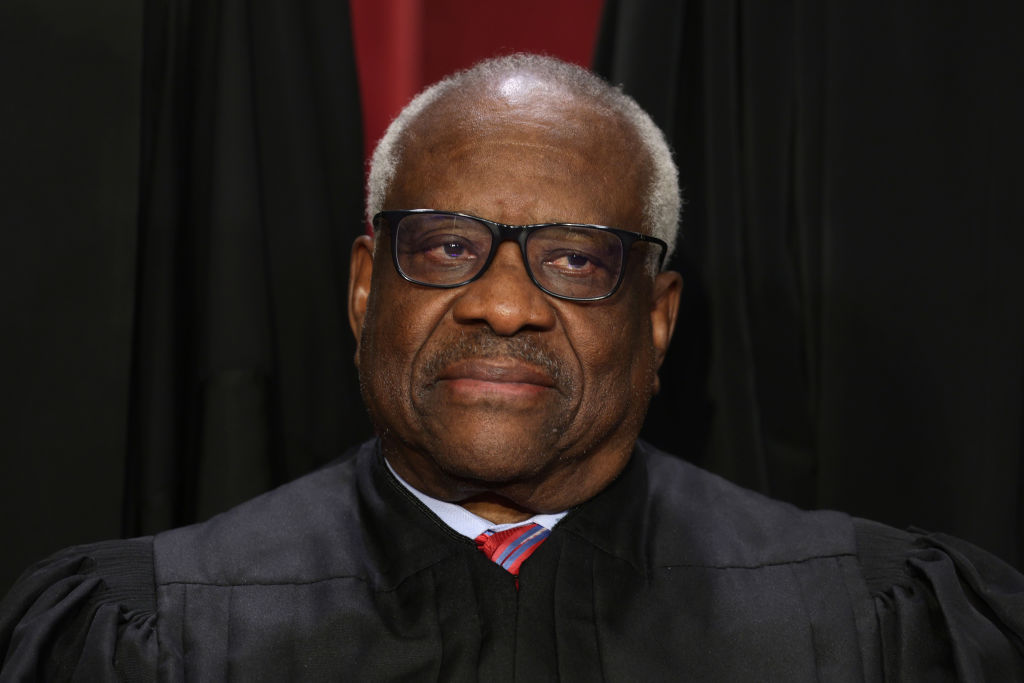
May 24, 2024
Clarence Thomas Celebrates 70th Anniversary of Brown v. Board of Education By Saying Supreme Court ‘Overreached Its Authority’
A report from American University's School of Education found segregated schools hurt Black and Latino students at disproportionate levels.
Supreme Court Justice Clarence Thomas suggests the high court “overreached its authority” in the landmark case that banned segregation in public schools 70 years ago.
While discussing the Supreme Court’s decision to allow South Carolina to continue using a congressional map that critics allege discriminates against Black voters, Thomas attacked the historic Brown v. Board of Education ruling argued by Thurgood Marshall, who would later become the first Black Supreme Court Justice. “The court took a boundless view of equitable remedies in the Brown ruling,” Thomas wrote.
“Those remedies came through extravagant uses of judicial power to end racial segregation in the 1950s and 60s.”
The 1954 ruling declared the “separate but equal” measure unconstitutional in a 9-0 vote, often considered the starting mark of the Civil Rights Movement. The decision sparked national outrage, prompting protests in Little Rock, Arkansas, when nine Black students enrolled in Little Rock Central High School in 1957. Ruby Bridges became the first African American child to attend formerly whites-only William Frantz Elementary School in Louisiana three years later.
Due to her young age, Bridges had to be escorted by federal marshals on her first day.
However, the amount of racial segregation in schools has jumped dramatically over the last 30 years with the rise of charter schools and school choice options. A report from American University’s School of Education found segregated schools hurt Black and Latino students at disproportionate levels as schools often have fewer resources, struggle with teachers, and have fewer AP class options.
Thomas has had his share of controversial statements against Black people. Regarding his defense of wanting to keep a predominantly white congressional district in South Carolina, he said federal courts have limited power to grant equitable relief, “not the flexible power to invent whatever new remedies may seem useful at the time.”
This is not the first time the Justice has opposed anti-discrimination measures. According to Newsweek, before being nominated by Republican President George H. W. Bush to the high court in 1991, he fought to use class-action lawsuits to enforce workplace discrimination laws while working for the U.S. Equal Employment Opportunity Commission (EEOC).
Years later, he voted with the majority in the Shelby County v. Holder case — voting to eliminate the 1964 Voting Rights Act in 2013. Thomas argued that racism in voting was no longer a thing, and he felt enough progress had been made to trash the law. Thomas has never backed down from his conservative ideology.
He once claimed that Black people are against him because they can’t handle his views that call for Black people to stop looking for free stuff from white people or government programs. He also said in a speech in 1998 that he refused to be an “intellectual slave.”